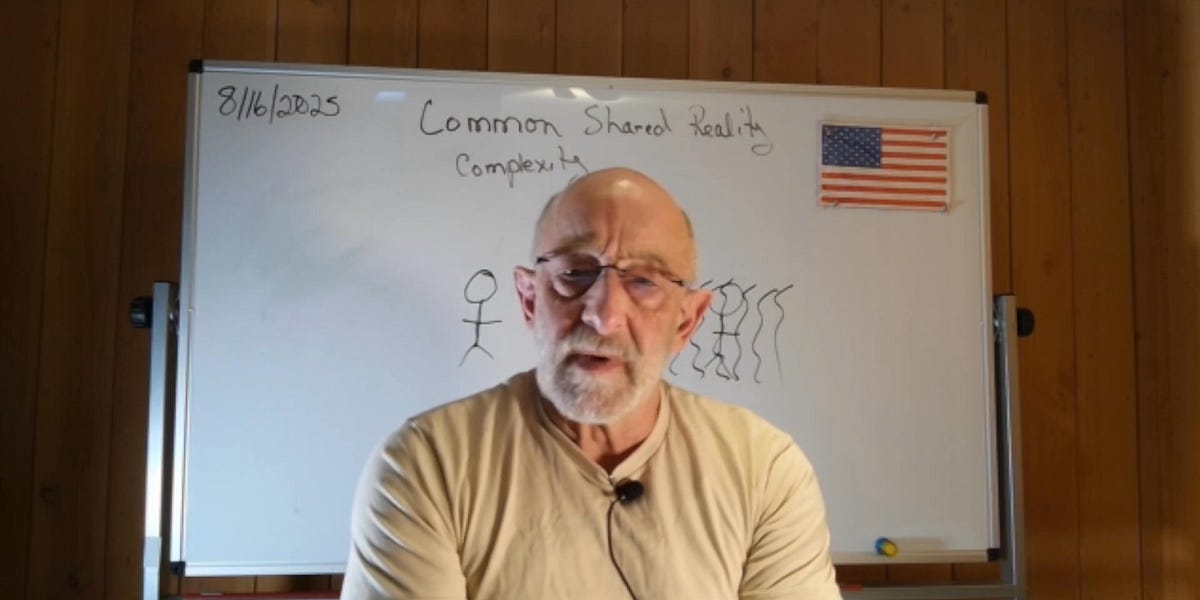Our Common Shared Reality has been manipulated since 1937 and it is important to acknowledge that filter as we analyze Web bot data.
- 00:00:45 Every living being has a reality; There is a common reality because all the individual realities are interacting
- 00:05:30 The Dao that can be name is not the Dao; Discovering consciousness while building the Web Bot
- 00:08:30 Predicted $100,000 Bitcoin a decade in advance
- 00:10:22 Spiritual Mechanics; Consciousness Mechanics; Karma
- 00:14:15 Airplane struck by lightning
- 00:20:35 Engineered Realty since 1937
- 00:24:00 First Report: Sun Disease, New Money, and New Electrics
- 00:28:03 $600 Silver; Two isotopes to silver;
- 00:35:15 Three monetary systems offered to the populace: 1) WEF Great Reset, 2) CBDC, 3) Cryptos
- 00:44:10 Bo Polny
- 00:48:05 Jsnip4
- 00:54:00 Confirmation Bias; Numerology
- 00:57:35 XRP; David Wilcock; Corey Goode
- 01:02:05 Karmic implications of seeing the future; Sam Sharma Interview; Bitconned – Centra Coin NetFlix Documentary;
- 01:09:40 TEOTWAWKI; Ken Swartz; Manufacturing Silver
Direct video link: https://clifhigh.substack.com/p/common-shared-reality

 clifhigh.substack.com
clifhigh.substack.com 



Found this written within an old book 1802 and Clifs video reminded me of it. I’m sure it ties into the much broader perspective and ontology.
In scientific inquiry, there is an inherent tension between complexity and simplicity. While complexity often emerges as a natural consequence of deep exploration, science should not be fixated on it. Rather, its true strength lies in the ability to identify and overcome complexity, striving for clarity and simplicity. The goal should not be to perpetuate complex frameworks or theories that, although interesting, may not offer practical solutions.
We cannot continue to exist within the cycle of unresolved complexities, whether they are longstanding or newly arising. Many of these issues remain unsolved, and even those that have been addressed often resurface in various forms, leading to endless cycles of conjecture. This, in itself, is counterproductive and, at times, intellectually stagnant.
The real achievement in science lies not in the accumulation of complex problems but in the effective simplification and resolution of those problems. When complexity is defeated, it signifies a higher level of understanding and intelligence. Greater complexity, while sometimes necessary for advancing knowledge, often leads to more complications, whereas simplicity provides a clearer path to progress and, ultimately, a better quality of life.
A scientist who becomes overly captivated by the allure of complexity—repeatedly returning to the same unresolved problems—may risk losing sight of the broader purpose of scientific inquiry. In contrast, a truly exceptional scientist is driven by the desire to eliminate unnecessary complexity, seeking solutions that not only advance our understanding but also improve the lives of individuals. True intellectual satisfaction comes not from dwelling in complexity but from overcoming it, offering clarity and practical solutions to the challenges we face.